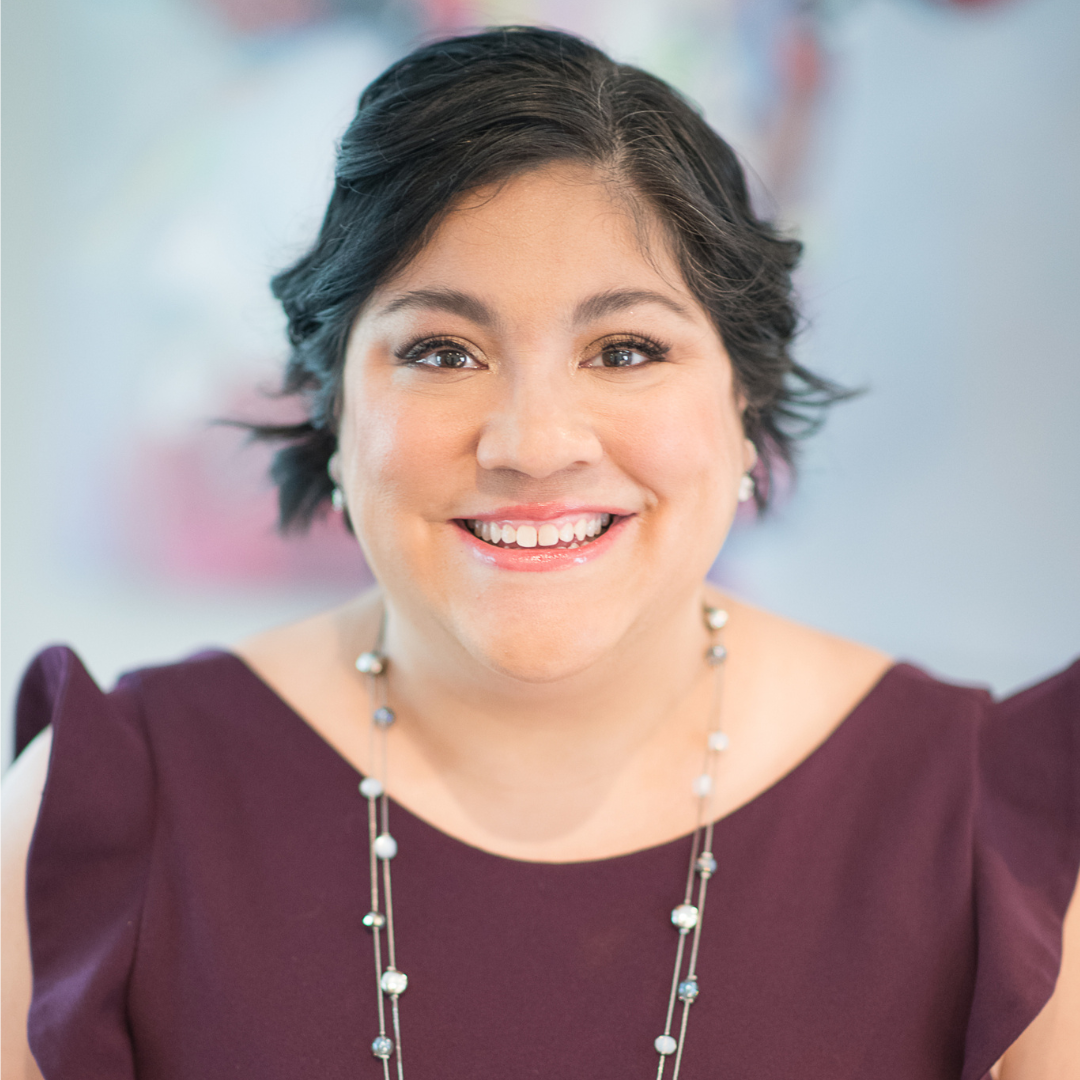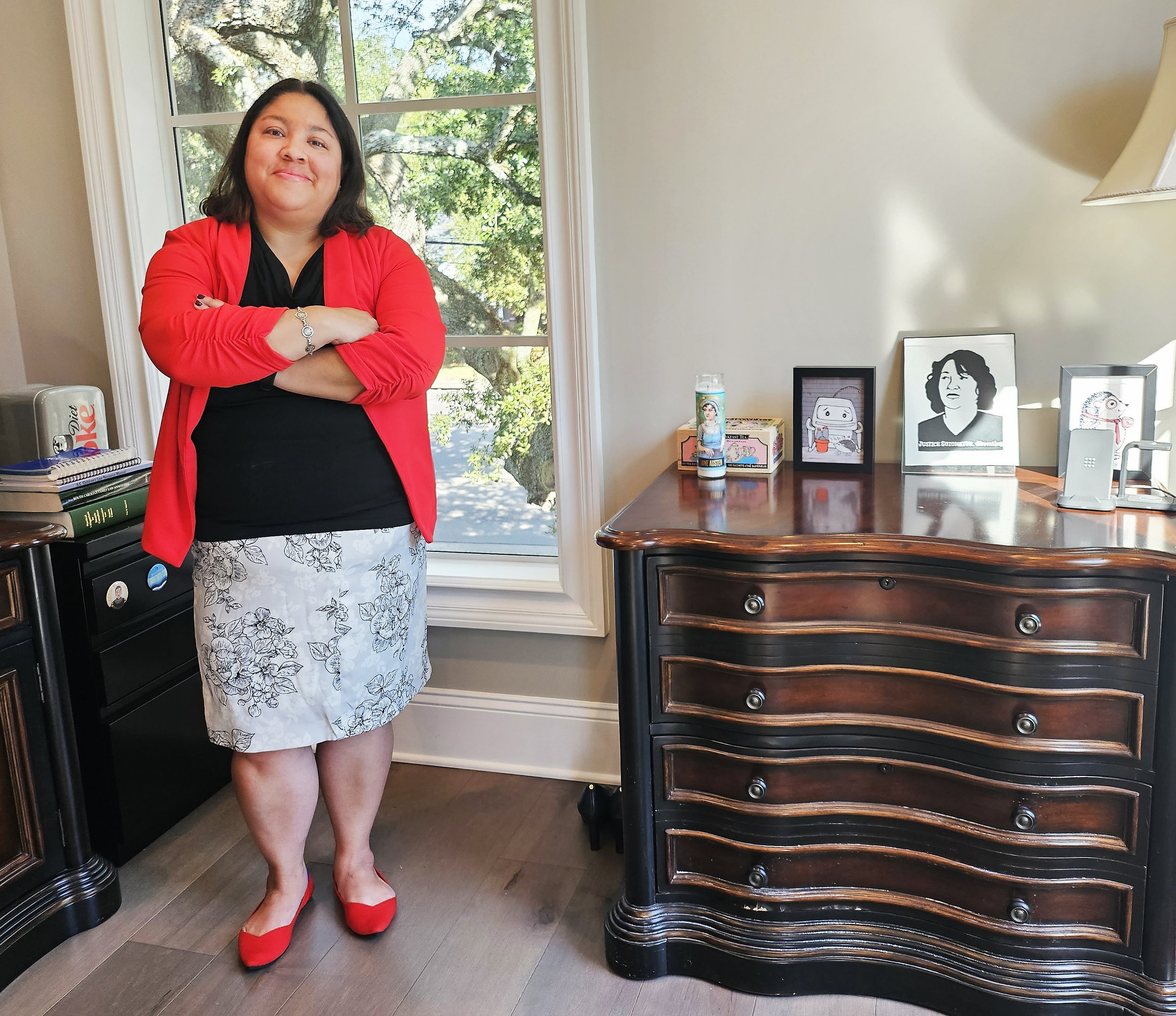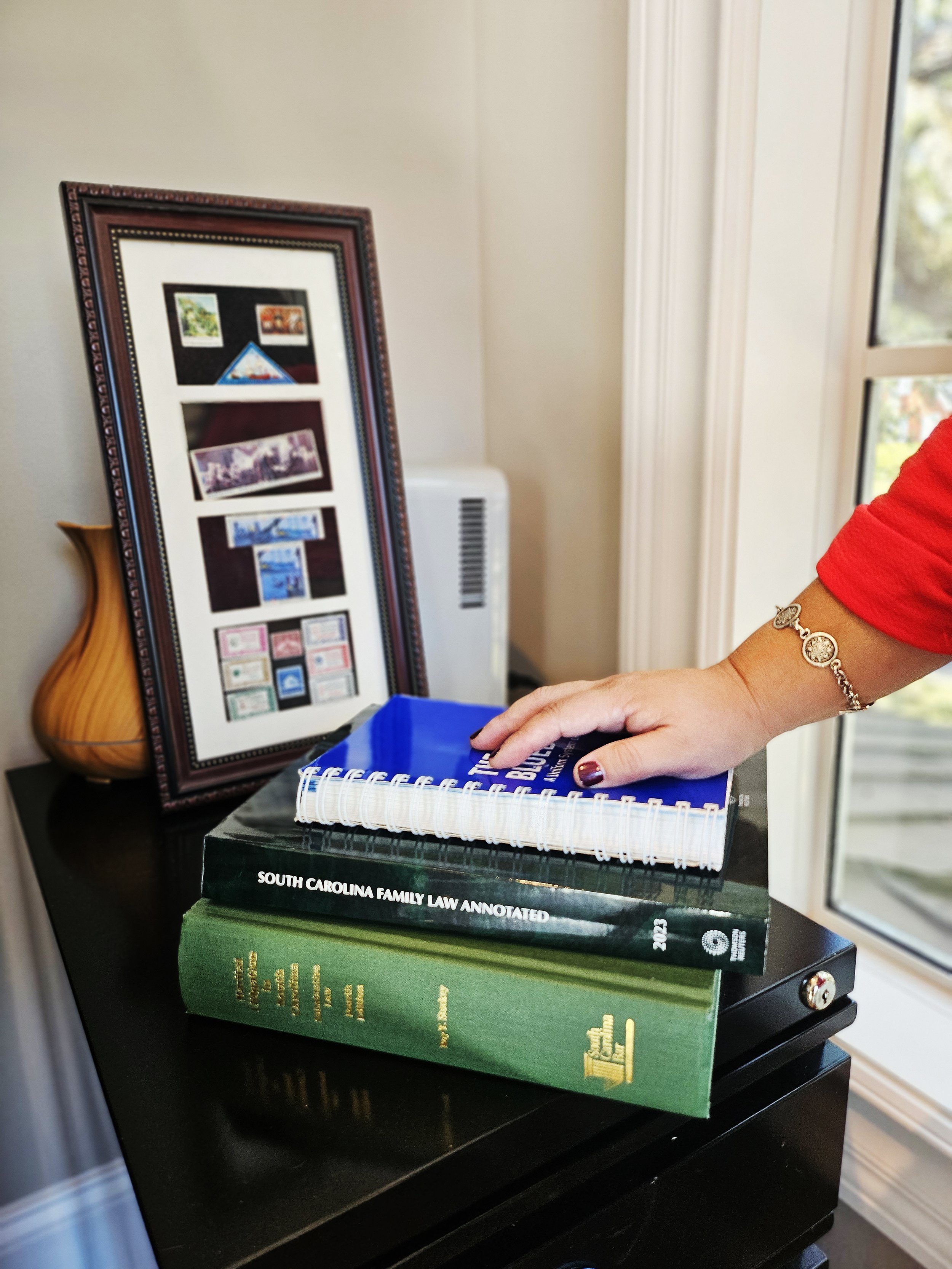How Sue Chang Empowers Others Through Justice
Sue Chang, an attorney and CLA board member shares why CLA and empowerment through justice is important to her and for our community.
My passion in law school was pro bono programs. The idea of access to justice has always been at the forefront of what I do. I first worked helping consumers who had mortgage fraud issues while I was a clerk at the Department of Consumer Affairs. After that, I worked in the Office on Violence Against Women grant for South Carolina Legal Services.
I ended up transitioning to working with the Language Access grant as well as the Migrant grant. I am fluent in Spanish, which is a great asset to have.
The Department of Labor allows people to come to America on H2 visas, which specifically allows them to help with farm work here, like the peach crops. As part of the Migrant grant, we as legal aid attorneys, would go on the farms and make sure there aren’t legal violations. The violations are really low standard. We made sure they had things like water, basic accommodations.
When we think about empowering communities, we think about people deserving legal action. That is one of the big cornerstones.
I was also working part time with the Language Access grant. We worked a lot with court administration here in South Carolina to ensure that there is a better standard, though there are still some issues, for court interpreters. It also helped other people who needed language assistance somehow. A small accommodation may be needed to give everyone the same access to justice. It is getting better in South Carolina, and I think it is because of work from Charleston Legal Access and South Carolina Legal Services, and other nonprofits.
“The nonprofits are creating places that can help people and providing the services our communities need.”
A lot of the court interpreters are not able to be available because of the way the court administration pays them. It is a minimum of two hours and if the hearing doesn’t go on, they don’t get paid. They get very little to no preparation and then they don’t even get paid if they sit around and wait or if it settles quickly, and it’s not like they would make a lot of money anyway. It is incredibly hard to be certified and be on the list because the third metric of language access is very hard, simultaneous interpretation. I personally am fluent in Spanish and English, and your brain is constantly scrambling to interpret. There are a limited amount of people who can provide this service and they just didn’t have enough to meet the demand, so some interpreters have been cleared by the clerk, but aren’t necessarily certified people. It is distracting to me as someone who understands Spanish. I know that what I am saying isn’t being interpreted correctly, but I can’t be an interpreter since I am not certified and cleared by the clerk. Small words can make big differences.
I have access to the best interpreters that my clients can possibly have for court, as a member of a private law firm. I could be waiting around for an interpreter, but I can call a fantastic certified person and ensure that they are there because my clients can pay for an interpreter. At my time with Legal Aid and DSS, we were at the mercy of the system. These interpreters want to help, but they can’t do so at their own risk of constantly losing money.
What I really enjoy about CLA, is that they have the capacity to help people in two languages, both Spanish and English.
The price point for all these attorneys makes it very difficult for somebody who is a hard working person, to be able to take the services of most of the attorneys. I like that CLA is a full service law firm. I was first impressed with CLA when I had a case and CLA issued for discovery. Formal discovery takes time and effort on both sides and you don’t usually get that from legal services providers. Purely grant funded attorneys sometimes can’t take that extra step. CLA did it for a case where all the parties were Spanish speaking and so to provide that level of excellence meant that they were incredibly diligent.
“The CLA attorneys provided the exact same level of service as you would get from any top tier private law firm here in Charleston. To have that, it looked and felt like true access to justice.”
Ever since that case, I couldn’t stop sending people to CLA. I would tell them that you have to choose them because they will go all the way for you. CLA does everything correctly. I know that sounds like a weird standard, but it is a high standard. I know that financial declarations are being looked at, discovery is happening, motions happen. This is not a lower standard of access to justice just because it is affordable.
People who are doing ok, who work, but just make it above that threshold, would have to slide into poverty to afford legal services. I do family law, but right now we have a housing grant. There are a lot of tensions here between landlords and tenants, about what is fair and right. The fact that CLA can provide quality legal services to people and keep them from sliding, it is amazing.
Charleston Legal Access is the bridge that gives middle class, everyday people that same access to justice.
If there are no consequences to mistreating someone who you feel is powerless, then there isn't going to be a macro change in how you see these people as empowered, important, and deserving of respect. As a person who doesn’t always receive that, but believes that, that is empowerment. It shows others that you have got to respect me because I have tools, I have counsel, I understand and know my rights and somebody is here protecting me. That is the big level change that we need. That is what I wish for CLA, that CLA can share with our community at large to know that these hardworking, underserved people are empowered as a group- they have protection and knowledge, and if they don’t, then they can get it. I think that that would make its own change in policy. I have seen that already in Housing Court, since the housing grants have begun. And they have been carried out by extremely qualified, intelligent, and experienced attorneys. That’s huge.
For example, I recently had an unusual situation where I became the guardian ad litem for an elderly person who’d been duped into thinking that a famous musician needed her help. She was lonely and vulnerable and ended up giving them money. The actual musician even wrote online that this was a scam, but the lady still believed that she had really been communicating with the musician. I don’t usually do housing, I am a family court attorney, but this woman had given all of her money to the scammer and was now losing her home.
I was in an interesting position because I am an experienced attorney, but I haven’t done anything with housing in years. I didn’t know any of the updates or how to navigate the situation. I was in the position of any person walking into Housing Court and having no idea what the laws and their rights were. The CLA attorneys who were there helping others, still took the time to share with me. They explained my role and provided guidance. They were able to articulate this entire process to me so that I could make the decisions for this woman with the knowledge that they freely, kindly, and intelligently provided.
This elderly woman had nobody, and so many people are vulnerable in some way either because of resources or circumstances, but then you have these CLA attorneys who are so knowledgeable and helpful, and it worked. In the end, we were able to find her alternative housing and get her settled.
As an attorney, I needed an attorney to explain to me housing law so that I could make an informed decision for a client and then get the resources she needed to be rehomed. Y’all came through.



